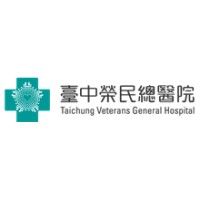预约演示
更新于:2025-09-09

Chung Shan Medical University
更新于:2025-09-09
概览
标签
其他疾病
肿瘤
皮肤和肌肉骨骼疾病
小分子化药
疾病领域得分
一眼洞穿机构专注的疾病领域
暂无数据
技术平台
公司药物应用最多的技术
暂无数据
靶点
公司最常开发的靶点
暂无数据
| 排名前五的药物类型 | 数量 |
|---|---|
| 小分子化药 | 2 |
关联
2
项与 中山医学大学 相关的药物作用机制 HK2抑制剂 [+3] |
非在研适应症- |
最高研发阶段临床前 |
首次获批国家/地区- |
首次获批日期- |
141
项与 中山医学大学 相关的临床试验NCT07089732
Evaluation of the Effects of GLP-1 Formula Liquid Drink on Gut Microbiota Modulation and Blood Glucose Regulation in Prediabetic Populations
A clinical human dietary intervention trial was conducted to investigate the effects of GLP-1 FORMUL liquid supplementation in individuals with prediabetes or obesity, with a focus on improvements in glycemic and lipid parameters, body composition, and gut microbiota profiles.
开始日期2025-08-08 |
申办/合作机构 |
NCT07018102
Nurse-Led Bedside Trunk Control Care Program for Patients With Stroke
This study aimed to apply care for stroke survivors by establishing trustable professional activities competency indicators and a trunk control care module for rehabilitation ward nurses during our second year.
开始日期2025-08-01 |
申办/合作机构 |
NCT07149792
A Multi-center RCT Clinical Trial on Personalized Precision Medicine for Patients With Psoriasis and Psoriatic Arthritis and Investigation on Cardiovascular Biomarkers
The inclusion criteria for this study were patients aged 18 to 75 years with a confirmed diagnosis of psoriasis by a dermatologist or psoriatic arthritis by a rheumatologist. Patients with active infections or suspected malignancies were excluded.
A total of 40 patients with psoriasis, with or without psoriatic arthritis, were enrolled from multiple centers in Taiwan. All participants were recruited from the outpatient clinics of either the Department of Allergy, Immunology, and Rheumatology or the Department of Dermatology in tertiary hospitals across Taiwan.
Participants were randomly assigned to one of two groups:
Prescreen Strategy-Based Biologics Selection Group
Standard-Based Biologics Selection Group
Patients will be followed up at weeks 4, 8, 12, 24, 32, 40, 48, 56, 64, and 72. Follow-up may be extended up to 3 years if necessary.
Clinical assessments will include:
Primary endpoints: PASI (Psoriasis Area and Severity Index), painful joint count, swollen joint count, and DAPSA (Disease Activity in Psoriatic Arthritis) score.
Secondary endpoints: DLQI (Dermatology Life Quality Index), BSA (Body Surface Area), pruritus score, and internal carotid artery thickness measured at 6 months, 1 year, and 2 years.
A total of 40 patients with psoriasis, with or without psoriatic arthritis, were enrolled from multiple centers in Taiwan. All participants were recruited from the outpatient clinics of either the Department of Allergy, Immunology, and Rheumatology or the Department of Dermatology in tertiary hospitals across Taiwan.
Participants were randomly assigned to one of two groups:
Prescreen Strategy-Based Biologics Selection Group
Standard-Based Biologics Selection Group
Patients will be followed up at weeks 4, 8, 12, 24, 32, 40, 48, 56, 64, and 72. Follow-up may be extended up to 3 years if necessary.
Clinical assessments will include:
Primary endpoints: PASI (Psoriasis Area and Severity Index), painful joint count, swollen joint count, and DAPSA (Disease Activity in Psoriatic Arthritis) score.
Secondary endpoints: DLQI (Dermatology Life Quality Index), BSA (Body Surface Area), pruritus score, and internal carotid artery thickness measured at 6 months, 1 year, and 2 years.
开始日期2025-07-29 |
申办/合作机构  臺中榮民總醫院 臺中榮民總醫院 [+4] |
100 项与 中山医学大学 相关的临床结果
登录后查看更多信息
0 项与 中山医学大学 相关的专利(医药)
登录后查看更多信息
9,487
项与 中山医学大学 相关的文献(医药)2025-12-31·Human Vaccines & Immunotherapeutics
Response to COVID-19 vaccination: Psychological stress and intentions of nursing personnel in Taiwan
Article
作者: Chang, Chi-Chang ; Lu, Yen-Chiao Angel ; Wu, Yu-Ping ; Kao, Hao-Yun ; Lee, Chiu-Hsiang ; Aljaberi, Musheer A ; Lin, Chung-Ying
Although the COVID-19 pandemic has been officially declared over, the global community must remain prepared for future outbreaks. In this regard, understanding the factors associated with willingness to get vaccinated among healthcare workers - given their critical role in infection control - remains essential. Therefore, this study aims to investigate the factors associated with nursing personnel's intention to get vaccinated against COVID-19. Using an online questionnaire survey from April to June 2022, 492 nurses (mean age = 34.4 years, SD = 13.4; 96.7% females) from different settings (including inpatient, outpatient, and ambulatory clinics) participated in the present study. With the use of SmartPLS 4.0, the Partial Least Squares Structural Equation Modeling (PLS-SEM) results showed that intention to get vaccinated was negatively associated with fear of COVID-19 (standardized coefficient = -0.149; p < .01) and vaccine hesitancy (standardized coefficient = -0.168; p < .01) but positively associated with informational support (standardized coefficient = 0.416; p < .01). Those with a higher intention to get vaccinated were positively associated with higher levels of no regrets regarding having received the vaccination (standardized coefficient = 0.544; p < .01). Moreover, fear, informational support, and vaccine hesitancy together explained 28.5% of the variance in intention to get vaccinated. In turn, the intention to get vaccinated explained 30.1% of the variance in the feeling of no regrets regarding having received the vaccination. Based on the results, addressing fear of COVID-19 through educational interventions, strengthening support systems, and promoting positive vaccination intentions may collectively improve vaccination rates among healthcare workers.
2025-12-31·ANNALS OF MEDICINE
Regarding: ‘Optimizing recovery in orthognathic surgery: the cohort study of impact of rocuronium–sugammadex on extubation and perioperative outcomes’
Article
作者: Hung, Ming-Hui ; Lin, Yu-Ting ; Chen, Chih-Fan
2025-12-31·Channels
Biophysical and structural mechanisms of epilepsy-associated mutations in the S4-S5 Linker of KCNQ2 channels
Article
作者: Wong, Swee-Hee ; Lee, Inn-Chi ; Yang, Yen-Yu ; Yang, Shi-Bing ; Chang, Hsueh-Kai
Mutations in KCNQ2 are linked to various neurological disorders, including neonatal-onset epilepsy. The severity of these conditions often correlates with the mutation's location and the biochemical properties of the altered amino acid side chains. Two mutations affecting aspartate at position 212 (D212) in the S4-S5 linker of KCNQ2 have been identified. Interestingly, while the charge-conserved D212E mutation leads to severe neonatal-onset developmental and epileptic encephalopathy (DEE), the more dramatic substitution to glycine (D212G) results in self-limited familial neonatal epilepsy (SLFNE), a much milder pathology. To elucidate the underlying mechanisms, we performed electrophysiological studies and in silico simulations to investigate these mutations' biophysical and structural effects. Our findings reveal that the D212E mutation stabilizes the channel in the voltage sensor down-state and destabilizes the up-state, leading to a rightward shift in the voltage-dependent activation curve, slower activation kinetics, and accelerated deactivation kinetics. This disruption in KCNQ2 voltage sensitivity persists even in the more physiologically relevant KCNQ2/3 heterotetrameric channels. In contrast, the D212G mutation primarily destabilizes the up-state, but its impact on voltage sensitivity is significantly reduced in KCNQ2/3 heterotetrameric channels. These findings provide key insights into the biophysical and structural basis of KCNQ2 D212 mutations and their contribution to epilepsy-related symptoms, offering a clearer understanding of how these mutations drive the varied clinical outcomes observed in patients.
5
项与 中山医学大学 相关的新闻(医药)2025-07-21
·赛柏蓝
作者 | 晓琳编辑 | 郑瑶首次发现,二甲双胍可降低这类患癌风险。01 服用二甲双胍与肠癌风险降低有关近日,我国台北医学大学、中山医学大学和辅仁大学组成的研究团队在期刊《Journal of the National Cancer Institute》发布一项与二甲双胍有关的重要研究成果,即二甲双胍的使用与结直肠癌风险降低56%相关,与全因死亡率降低32%相关。这也是科学家首次在炎症性肠病患者群体中发现,服用二甲双胍与肠癌风险降低有关。无独有偶,最近,来自美国加州大学圣地亚哥分校的一项研究发现,与使用磺酰脲类药物的患者相比,服用二甲双胍的2型糖尿病女性活到90岁及以上的几率提升了整整30%;来自图宾根大学和德国图宾根神经退行性疾病中心的研究人员发现,在帕金森病中,大脑区域负责运动控制的大量神经细胞会死亡,而二甲双胍可以起到保护细胞的作用。截止到目前,据赛柏蓝不完全梳理,二甲双胍在抗衰老、防癌、减肥、降血压、调血脂、预防血栓、修护心脏、预防老年痴呆、改善脂肪肝、调节激素、抗炎、改善肠道菌群等40余项作用。02复方降糖药市场快速增长“二甲双胍+”成焦点当然,二甲双胍的这些新作用仍需进一步研究,对于非糖尿病患者来说,自行服用二甲双胍存在一定风险。二甲双胍从1957年进入临床应用已有近70年的历史,作为治疗2型糖尿病的一线药物,进入集采后,销量快速增加。国家医保局曾表示,集采后2023年全国医疗机构使用二甲双胍集采中选药品114亿片,其中0.25g规格的用量为46亿片,0.5g规格的用量为68亿片,中选二甲双胍用量占该药品总用量的84%。今年6月,中国疾病预防控制中心慢病中心发布一组数据,2023年我国糖尿病患者数量已达2.33亿,占全球糖尿病人口的四分之一,这为二甲双胍市场提供了持续的需求。然而,随着精准医疗时代的到来和糖尿病诊疗理念的更新,传统单一剂型的二甲双胍难以满足个体化治疗的需求,尤其集采后,亟待提升二甲双胍的价值。从目前的市场情况看,二甲双胍复方制剂等创新剂型已成为企业的新赛道。米内网和法伯数据显示,口服复方降糖药的市场规模呈现快速增长态势,2022年突破30亿元,同比增长27.3%,2023年涨至37亿元以上。其中,2022年我国总体医疗机构非胰岛素类降糖药物市场中,降糖复方制剂占比为9.7%。这些复方制剂中多以“二甲双胍+”为基础药物:二甲双胍+DPP-4抑制剂(西格列汀二甲双胍)、二甲双胍+SGLT-2抑制剂(二甲双胍恩格列净)、二甲双胍+TZD类(吡格列酮二甲双胍片)和二甲双胍+磺脲类(二甲双胍格列本脲)等。未来,个体化复方组合及长效剂型或成为药企差异化竞争关键。03这些“明星”降糖药适应症不断拓展除二甲双胍外,司美格鲁肽、替尔泊肽等降糖药近年来也展现出超越降糖本身的广阔治疗潜力。 多项研究结果显示,司美格鲁肽还能降低心血管疾病高风险患者的主要不良心血管事件发生率达20%;在肥胖的HFpEF伴2型糖尿病的患者中,可达到改善心衰相关症状和体力活动受限,同时达到减重的作用;目前针对非酒精性脂肪性肝炎和阿尔茨海默病的Ⅲ期临床试验正在进行中。 2021年4月,国家药监局批准司美格鲁肽上市,用于治疗2型糖尿病和降低心血管风险;2024年6月,司美格鲁肽“减重版”获批,用于长期体重管理;本月,再次被批准用于降低2型糖尿病合并慢性肾病(CKD)成人患者因心血管疾病而恶化、肾衰竭(终末期肾病)和死亡的风险。 礼来公司的替尔泊肽则凭借“双靶点”机制,在SURMOUNT系列研究中展现出优于司美格鲁肽的减重效果。此外,替尔泊肽还能够显著减少呼吸暂停和低通气的次数,改善患者的睡眠质量;可使射血分数保留的心力衰竭伴肥胖患者的心血管死亡或心衰恶化风险降低38%。 2024年5月,替尔泊肽注射液被国家药监局批准用于治疗成人2型糖尿病患者血糖控制,同年7月被获批用于成人长期体重管理。今年7月,再次被批准用于治疗成人肥胖患者的中度至重度阻塞性睡眠呼吸暂停。 从降糖到“全能药”,代谢性疾病药物治疗已进入“多效合一”的新时代。无论是低成本的二甲双胍,还是现在的“超级明星”司美格鲁肽、替尔泊肽,其适应症的拓展都展现了长期的商业价值。新适应症的探索为其市场带来了新的增长点,这也提示药企要在创新研发和市场定位上抢占先机。END内容沟通:郑瑶(13810174402)
2025-07-13
·奇点网
*仅供医学专业人士阅读参考已经有不少研究发现,糖尿病患者使用二甲双胍,与患结直肠癌风险较低相关。那如果这些2型糖尿病患者又多一项肠癌风险因素呢?例如,同时患有炎症性肠病。服用二甲双胍与肠癌风险较低之间的相关性,还会存在吗?近日,由我国台北医学大学、中山医学大学和辅仁大学的研究人员组成的研究团队,在著名期刊Journal of the National Cancer Institute上发表了一篇重要研究成果[1],填补了上述空白。他们基于我国台湾省匹配的1695名使用二甲双胍的炎症性肠病患者与1695名未使用者数据,发现二甲双胍的使用与结直肠癌风险降低56%相关(aHR=0.44),与全因死亡率降低32%相关(aHR=0.68)。而且结直肠癌风险随着累积暴露剂量的增加而下降;累积剂量最高的四分位组风险降低了67%(aHR=0.33)。研究人员基于一个囊括了241590名年龄在20岁及以上的炎症性肠病患者数据库中,进行了倾向评分匹配(PSM),分别筛选了1695名使用二甲双胍的炎症性肠病患者,和相匹配的1695名未使用者二甲双胍的炎症性肠病患者。两组受试者的基线特征均衡良好,平均年龄相近(56.99岁 vs 56.45岁),且约70%的研究对象年龄在51岁以上。在时间依赖性Cox模型分析中,二甲双胍使用与结直肠癌风险降低56%显著相关(aHR=0.44;P=0.0002),还与全因死亡率降低32%显著相关(aHR=0.68;P<0.00001)。这些相关性在所有调整模型中均保持稳定。他们也进行了结直肠癌特异性死亡风险的事后分析。虽然肠癌相关死亡事件的数量有限,但是在所有模型中,二甲双胍的使用仍与较低的肠癌特异性死亡率显著相关。在模型4中,二甲双胍的使用与肠癌特异性死亡风险降低44%相关(aHR=0.56;P=0.0172)。此外,他们还发现累积二甲双胍暴露量与肠癌风险之间存在显著的剂量-反应关系。与最低四分位数(Q1)相比,最高三个四分位数(Q2、Q3和Q4)的完全校正后aHR分别为0.68(Q2)、0.57(Q3)和0.33(Q4),趋势检验具有统计学意义(趋势P值<0.001)。显然,暴露量越高,患肠癌的风险降低越多,最高可降低67%。总的来说,我国研究人员的这项研究成果表明,对于身患炎症性肠病的成人而言,二甲双胍的使用与肠癌风险显著降低有关,而且这种相关性还存在剂量-反应关系。据了解,这也是科学家首次在炎症性肠病患者群体中发现,服用二甲双胍与肠癌风险降低有关。需要指出的是,这一研究结果仍需前瞻性随机研究验证,在临床试验证实上述发现之前,不建议炎症性肠病患者自行服用二甲双胍预防肠癌。参考文献:[1].Huang YJ, Lin JA, Chen WM, Shia BC, Wu SY. Metformin use and risk of colorectal cancer in patients with inflammatory bowel disease: a nationwide, Population-Based cohort study. J Natl Cancer Inst. Published online July 2, 2025. doi:10.1093/jnci/djaf165本文作者丨BioTalker
临床结果AHA会议
2024-03-15
Gleneagles Hospital, part of the international private hospital group IHH Healthcare, has partnered with medical AI providers to bolster its diagnostics capability in Singapore and Hong Kong.
On one hand, the radiology department at Gleneagles Hong Kong
will be adopting Australian company Annalise.ai's AI solution for analysing chest X-rays and CT brain scans
Gleneagles Singapore, on the other hand,
will be integrating South Korean company Lunit's AI-powered mammography analysis solution, Lunit INSIGHT MMG, into its breast screening workflow.
Taiwan looks to validate Lunit's AI for its national cancer screening
Alongside the Gleneagles contract, Lunit will also be providing its chest X-ray software, Lunit INSIGHT CXR, to Chung Shan Medical University in Taiwan. The solution is intended to be validated for potential integration into Taiwan's national cancer screening program.
Ex-Bitsmedia CEO joins Doctor Anywhere
Doctor Anywhere, a telemedicine provider in Southeast Asia, has recently announced the appointment of Louis-Bernard Carcouet as its VP of Product.
Carcouet was the former CEO of Bitsmedia, the company behind the Muslim lifestyle app, Muslim Pro. He was also previously with Asia-focused property portal, PropertyGuru, as product manager.
Based on a press statement, Carcouet will lead DA's product strategy, focusing on improving user experience across platforms.
"Louis’ long history of product innovation and leadership in the tech industry, coupled with his passion for improving healthcare, make him an invaluable addition to the DA team," DA founder and CEO Lim Wai Mun said about his appointment.
"We’ve seen how technology has been a catalyst for healthcare, in enhancing patient experiences and driving positive outcomes. With a relentless focus on user-centric design and innovation, I’m excited to collaborate with our team to build products that truly make a difference in people’s lives," Carcouet also commented.
高管变更
100 项与 中山医学大学 相关的药物交易
登录后查看更多信息
100 项与 中山医学大学 相关的转化医学
登录后查看更多信息
组织架构
使用我们的机构树数据加速您的研究。
登录
或

管线布局
2026年03月01日管线快照
管线布局中药物为当前组织机构及其子机构作为药物机构进行统计,早期临床1期并入临床1期,临床1/2期并入临床2期,临床2/3期并入临床3期
临床前
2
2
其他
登录后查看更多信息
当前项目
| 药物(靶点) | 适应症 | 全球最高研发状态 |
|---|---|---|
Theaflavin-3,3′-Digallate ( CASP family x HK2 x MAPK x TIGAR ) | 骨肉瘤 更多 | 临床前 |
异槲皮素 ( STAT3 ) | 肺损伤 更多 | 临床前 |
精气神源浓缩片 | 骨关节炎 更多 | 无进展 |
登录后查看更多信息
药物交易
使用我们的药物交易数据加速您的研究。
登录
或

转化医学
使用我们的转化医学数据加速您的研究。
登录
或

营收
使用 Synapse 探索超过 36 万个组织的财务状况。
登录
或

科研基金(NIH)
访问超过 200 万项资助和基金信息,以提升您的研究之旅。
登录
或

投资
深入了解从初创企业到成熟企业的最新公司投资动态。
登录
或

融资
发掘融资趋势以验证和推进您的投资机会。
登录
或

生物医药百科问答
全新生物医药AI Agent 覆盖科研全链路,让突破性发现快人一步
立即开始免费试用!
智慧芽新药情报库是智慧芽专为生命科学人士构建的基于AI的创新药情报平台,助您全方位提升您的研发与决策效率。
立即开始数据试用!
智慧芽新药库数据也通过智慧芽数据服务平台,以API或者数据包形式对外开放,助您更加充分利用智慧芽新药情报信息。
生物序列数据库
生物药研发创新
免费使用
化学结构数据库
小分子化药研发创新
免费使用
